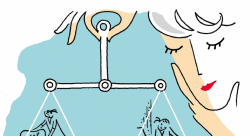
Christmas and New Year are a hectic time for everybody – but for those caring for friends and loved ones it can be particularly stressful.
There are more than 6.5 million carers across the UK, bringing comfort and support to millions of people who could not cope without them. They are celebrated in Carer’s Week each June, an annual awareness campaign to recognise their vital contribution, but their work goes on regardless.
A carer is anyone who looks after a family member or friend who has a disability, mental or physical illness, or who needs extra help as they grow older. Their impact on all aspects of the life of the person they are caring for is crucial, but it’s a tough job and it’s important that they get the support they need.
If you have a carer, one of the best ways to thank them for their hard work is to give them a break. And the easiest way to do this is to book yourself in for respite care. This will let them recharge their batteries and will also be a little holiday for you.
Many retirement villages offer respite break facilities. You’ll often find they also have spas and health clubs, with a pool, sauna, steam room and access to a spa treatment or two.
Then there are pampering beauty treatments – you can book an on-site hairdresser, manicure or pedicure. You might even find someone who can do your make-up.
Don’t underestimate the benefits of a respite break – you can seek out massage, aromatherapy, reflexology and even Indian head massage. Or maybe the best way for you to relax is to hit the gym. Again, a retirement village might be a good option, as gyms are becoming regular features. Some of these gyms even have added extras, such as equipment suitable for rehabilitation after an injury. Staff are always available to offer expert advice.
Alternatively, you might just want to go for a walk in the landscaped grounds that surround many retirement communities.
All these places have different facilities, so make sure the staff are aware of any mobility or health issues you might have to avoid disappointment. There may also be theatre trips, shopping breaks, afternoon teas and visits to historic properties on offer.
You could consider approaching your local authority if you need a respite break – they may be able to pay, or partly pay for your trip. A number of charities can also help with the cost of a short stay away from home.
There are two main things to consider about your respite break. First, think about the location and how easy it is for you to get there. If possible, visit before you book. Have a list of your needs and requirements when you visit or call, to help you make a decision.
Second, check the price and see what it includes. Set a budget. Knowing how much you have to spend from the start means you can plan a break that won’t burn a hole in your pocket.
Some respite centres will have space for more than one person, so you could go with other members of your family.







